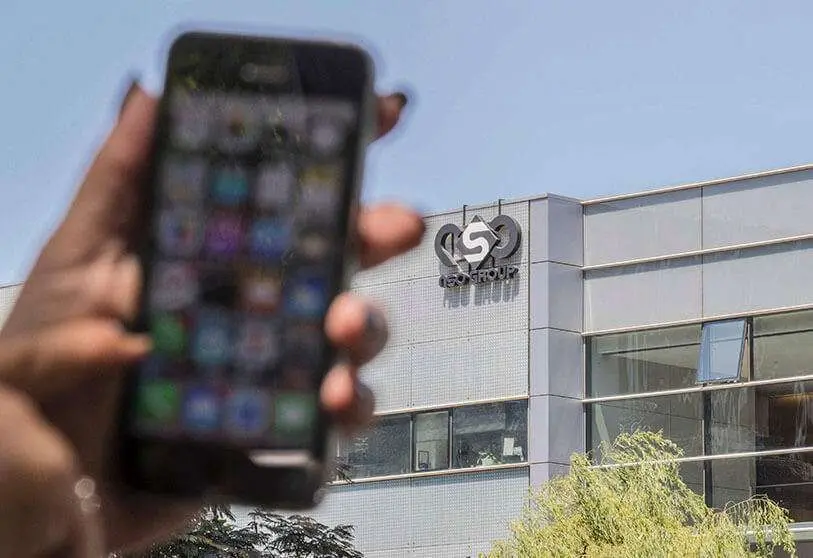Pegasus or Big Brother in the Matrix version

My friends always teased me for not using a smartphone. I had a phone from "another time", an old Nokia that couldn't connect to the internet but which at least allowed me to make calls and send texts, which in a not so distant life was already a considerable thing. Of course, I missed all those applications that allowed me to move around in an unknown place, not to get lost in a foreign country, not to talk to a stranger in the street and ask for directions... but I could find the name of a flower, translate a menu in a restaurant instantly without asking the waiter... The more time passed, the more I became a timeless being who refused modernity.
During all these years I resisted, I knew that this technology was a lure, a danger and that the price to pay was too high and that anyway I didn't need to communicate more in the virtual world as I always preferred direct contact.
But recently I had to enter the 4.0 civilisation. I had reached my limits: my bank threatened to stop letting me access my account, a director excluded me from a project because I didn't have WhatsApp... I needed dozens of applications to enter the dictates of technology. I approached the disembodied world of the digital by dispossessing myself of my personal data to be at peace with my surroundings.
Once inside the matrix of algorithms, one no longer has control over anything. Where does all this collected information go? For what purposes? We have very few answers to these questions.
In 2018, the misappropriation of personal information on Facebook caused a scandal. When questioned by Congress, Facebook CEO Mark Zuckerberg admitted that his group collects much more data than that which its users post on their profiles. From Zuckerberg to Pegasus there is only one step and it has been taken for some time now. Amnesty International has constantly denounced its use by several countries to muzzle the press or neutralise an opponent. What was science fiction is becoming reality. We are stunned to discover that thousands of people are being tracked without their knowledge: they are journalists, human rights activists and even presidents, ministers and ambassadors... No one is spared any more, and once this technology has been acquired, it is very difficult not to give in to the desire to spy on others. From cybersecurity to cybercrime, the step has been taken.
As we all know, we are increasingly being monitored by our governments. Many researchers have written and warned against these shifts. Among them Yuval Noah Harari who in 2018 warned that artificial intelligence could "erase many of the practical benefits of democracy and erode the ideals of freedom and equality. It will further concentrate power among a small elite if we do not take steps to stop it.
We are already there, and we knew from the start that it would not be long before the excesses would reduce our spaces of freedom.
Security comes first, we are told. Yes, but at what cost?
States are constantly investing in cybersecurity to control their citizens. But what tools do we have to monitor our leaders? What are the repercussions on our democracies? At the moment, communication campaigns are being set up to whitewash this or that government, state, justify, deny... Investigations are underway. Meanwhile, Amnesty International is sharing an open source tool to help information security researchers and civil society detect and respond to Pegasus threats. In 2019 and even before this scandal broke the NGO had confounded NSO following the spying on journalists and activists around the world. The Israeli company had committed to take measures to prevent its tools being used to commit human rights abuses in the future. Since then, nothing has been done. So many lives have been ruined because of spyware, and this is just the tip of the iceberg. Now that the digital dictatorship is underway, who will have the courage to stop it?

